School of Social Work News
Pages
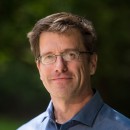 Andy Grogan-Kaylor 2021 Recipient of the Doctoral Student Organization Faculty Award
Andy Grogan-Kaylor 2021 Recipient of the Doctoral Student Organization Faculty AwardProfessor Andy Grogan-Kaylor has been chosen as this year’s recipient of the Doctoral Student Organization Faculty Award. Since 2019, doctoral students have collectively selected one professor to honor with the recognition. "Andy has taught and mentored many doctoral students. His approach to teaching methods courses is engaging for students across a range of methodological backgrounds. His courses help us see how methods can be leveraged as a tool to advance social justice. In addition to supporting students through teaching, Andy provides a great deal of support outside the classroom. Throughout my years in the program, I have consistently noticed that doctoral students go to Andy with complex methodological questions. We always come away better equipped to move forward with our research."
- May 28, 2021
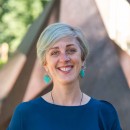 Katie Schultz Research on Native American Youth Networks Funded by National Institute on Drug Abuse
Katie Schultz Research on Native American Youth Networks Funded by National Institute on Drug AbuseAssistant Professor Katie Schultz’ research project, Tribal Reservations Adolescent Connections Study, has been funded by the National Institute on Drug Abuse. This mixed methods study will explore peer and family relationships of American Indian (AI) youth, and how they factor in substance use, exposure to violence and suicide among youth living on a Northern Plains reservation. "This is my first foray into prevention research,” said Schultz, “so I’m excited about developing a line of research to prevent substance use and associated outcomes among AI youth and using the data to design a culturally grounded intervention.”
Katie Schulz’ research project, Tribal Reservations Adolescent Connections Study, has been funded by the National Institute on Drug Abuse. This study will explore peer and family relationships of American Indian youth, and how they factor in substance use, exposure to violence and suicide among youth living on a Northern Plains reservation.
- May 24, 2021
- QAC Encourages Action Against Anti-LGBTQ+ Legislation
Hi SSW,
I hope everyone is feeling excited for the beginning of a new semester, or for the beginning of a summer break!
[TW: transphobia, anti-LGBTQ+ sentiments]
This email comes with great sadness because as of last week, 2021 officially became the worst year in recent history for anti-LGBTQ bills that have been passed into law according to the Human Rights Campaign. As the Queer Advocacy Coalition, we wanted to send out some information about some of the bills being considered that could be signed into law at any moment, and offer advocacy opportunities and resources for you all to voice opposition to this harmful legislation. (Linked here is an email template that can easily be edited for multiple communications.)
Arkansas has two bills sitting on the desk of Governor Hutchinson right now. Senate Bill (SB) 389 will undermine access to sex education, and Senate Joint Resolution (SJR) 14 would allow discrimination under the guise of religious refusal. Contact Governor Hutchinson by email at [email protected] or by phone at (501) 682-2345 to voice opposition to these bills.
Florida has three bills waiting for Governor DeSantis to sign into law at any time. SB 1028 is an education bill that includes an anti-trans sports ban. House Bill (HB) 545 is an anti-LGBTQ sexual educaiton bill, and HB 241 is along the exact same lines. Contact Governor DeSantis by email at [email protected] or by phone at (850) 488-7146.
Tennessee has three bills awaiting a signature from Governor Lee. HB 1233 is an anti-trans bathroom bill for schools, HB 1182 is an anti-trans bathroom bill targeting businesses, and HB1027 will regulate medical care for trans youth. Contact Governor Lee by phone at (615) 741-2001.
To follow more imminent bills standing in state legislatures in states, visit and follow Human Rights Campaign for weekly updates. An additional resource to stay up to date on the anti-transgender legislation in other states can be found at the following link: Legislative Tracker: Anti-Transgender Legislation.
Finally, if you or a loved one are in need of resources, several are included below:
National Suicide Prevention Hotline: 1-800-273-8255Trevor Project LGBTQ+ Hotline: 1-866-488-7386CAPS After Hours: 734-764-8312The UM Psychiatric Emergency Services (PES): 734-936-5900In Solidarity,
Queer Advocacy Coalition- May 12, 2021
- Historic King Solomon Baptist Church: Responding to a Community in Crisis
Read the ENGAGE team’s case study on Charles E. Williams II, PhD student and pastor at the Historic King Solomon Baptist Church. During the early days of the pandemic, Williams and his congregation spearheaded efforts to coordinate food delivery and other assistance to vulnerable Detroit area residents. At the height of the response effort, 30 Black churches were mobilized to deliver 700,000 meals across the city of Detroit — allowing vulnerable residents to stay at home and help curb the spread of COVID-19. Williams’ work exemplifies the power of connecting communities to resources, and how Michigan Social Work supports movements for social change, especially during times of crises.
- May 10, 2021
- Learn more »
- Leigh Robertson Is the School of Social Work’s 2021 Distinguished Lecturer
Field Faculty and Lecturer Leigh Robertson has been named the 2021 SSW Distinguished Lecturer for her dedication and skill in field education.
Since joining the School in 2004, she has provided exceptional instruction and mentorship to over 1,500 social work students. She has worked closely with field instructors, who routinely testify to the importance of Robertson’s mentorship and support of their efforts in working with our students. In attending to the needs and growth of both students and field instructors, she has ensured that MSW students receive the kind of learning and growth through their field experiences which fulfill a vital and significant aspect of the School’s curriculum.
Robertson has also played an instrumental role in attending to the importance of diversity, equity and inclusion concerns and has provided important support to LBGTQIA+ students. She took the lead in creating “Out in Field'' trainings for field instructors and agencies, which not only support LGBT+ students’ ability to fully benefit from their field placements, but also advance the work of inclusion and diversity across our community.
- May 3, 2021
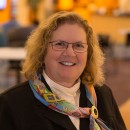
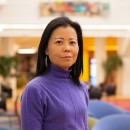 Mary Ruffolo and Mieko Yoshihama Receive 2021 SSW Distinguished Faculty Awards
Mary Ruffolo and Mieko Yoshihama Receive 2021 SSW Distinguished Faculty AwardsProfessors Mary Ruffolo and Mieko Yoshihama have been named 2021 SSW Distinguished Faculty for their dedication to scholarship and teaching, for their excellent service to both the School and to students.
- May 3, 2021
- U-M Community Outreach to Support the COVID-19 Crisis in India
In recent weeks, the number of COVID-19 cases in India has exploded, overwhelming the nation’s public health, medical and infrastructure capacities, and creating a health care catastrophe.
The U-M Community has close ties to India that go back over a century, resulting in cherished long term research and educational partnerships. We currently have about 1,000 students from and 6,000 alumni in India, many of whom are personally affected by this unfolding crisis.
How you can help:
- Give to the American India Foundation’s COVID Response Fund. Entering “University of Michigan” in the comment box will ensure that your gift is recognized as part of the U-M community’s effort to assist at this critically important time.
- Take five min to call Congress and ask them to encourage and support measures that would increase vaccination rates in India.
We know many of you with family or friends in India are suffering. Please do not hesitate to reach out to access university support resources if you need help during such a difficult time. Our Counseling and Psychological Services (CAPS) are available to all students.
- U-M Counseling and Psychological Services CAPS resources are shared with students and listed in the MSW News. Alejandro Rojas, MSW, is the CAPS embedded counselor with the School of Social Work,. You can reach him by phone at (734) 763-7894 or [email protected].
- Our Faculty and Staff Counseling and Consultation Office is open and available to provide support to U-M faculty and staff on the Ann Arbor.
- April 30, 2021
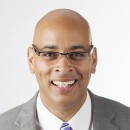 College Savings Accounts Help Low-Income Children Build Assets
College Savings Accounts Help Low-Income Children Build AssetsProfessor William Elliott III spoke with the New York Times about how establishing college savings accounts early transforms expectations about the future and impacts savings. “A savings account for a low-income kid means a lot more to them than it does for a wealthy kid.”
- April 28, 2021
- Learn more »
- Advisory Committee Begins Search for New Dean
The advisory committee includes faculty, staff, students and other members of the U-Community. The committee is looking for a replacement for Lynn Videka who will step down as dean on December 31, 2021. Read the full story in The University Record.
- April 21, 2021
- Learn more »
- Derek Chauvin Found Guilty of Murdering George Floyd
The jury has found Derek Chauvin guilty on all counts.
The jury has found Derek Chauvin guilty of second-degree murder in the death of George Floyd.
The jury has found Derek Chauvin guilty of third-degree murder in the death of George Floyd.
The jury has found Derek Chauvin of manslaughter in the death of George Floyd.Read the university’s response to the verdict in the trial of Derek Chauvin.
- April 20, 2021